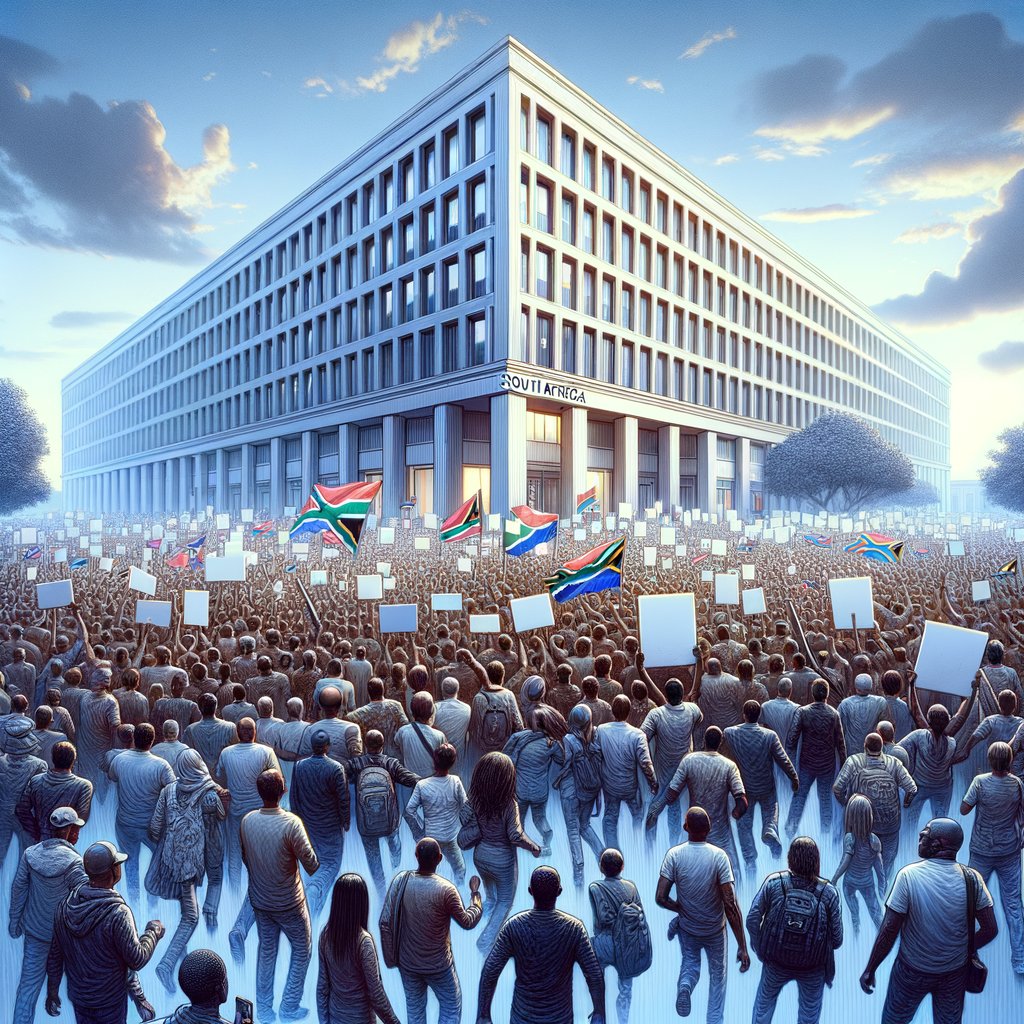Image created by AI
White South Africans Rally at U.S. Embassy in Pretoria Supporting Donald Trump
In a striking display of international political solidarity, a substantial group of white South Africans convened at the U.S. Embassy in Pretoria last Saturday to showcase their unwavering support for former U.S. President Donald Trump. The crowd, which numbered in the hundreds, was predominantly composed of individuals from the Afrikaner community, a demographic that has expressed increasing discontent with the current South African government's policies.
The protestors carried signs with messages such as “Thank God for President Trump,” highlighting their appreciation for his attention to their causes and concerns. This demonstration comes on the heels of Trump's recent executive order that proposes cutting aid to South Africa, criticizing the Black-led government for alleged discriminatory practices against the country's white minority.
Willem Petzer, the protest's organizer, spoke fervently to the crowd about the broader implications of their demonstration. “We just want to say to America and to the West, despite the foreign policy decisions the South African government has made over the past two decades, the West still has a friend here in South Africa,” Petzer stated. This message underscores a plea for international support against what they perceive as racially biased governance.
The protesters articulated a narrative of a divided nation, lamenting the erosion of the post-apartheid vision of peace and reconciliation. "Unfortunately, the truth of the last 30 years is that we have a divided country, where government policies have positioned South Africa as a fractured nation," one protester shared, reflecting a common sentiment among the crowd.
The South African government, however, staunchly denies these accusations, arguing that the claims of racial discrimination in its policies are unfounded. Officials have accused former President Trump and his supporters of propagating misinformation and distorting the real picture of South Africa’s legislative reforms.
The demonstration not only reflects the local socio-political climate but also highlights the global reach of U.S. politics, where foreign leaders' actions and statements resonate with international audiences. It raises important questions about the impact of international relations on domestic politics and vice versa.
This protest marks a significant moment in South African public life, revealing deep-seated divisions and the continued struggle over the narrative and reality of racial and political identity in the post-apartheid era. As South Africa grapples with these internal dynamics, the international community remains a critical audience and participant in the unfolding drama.










